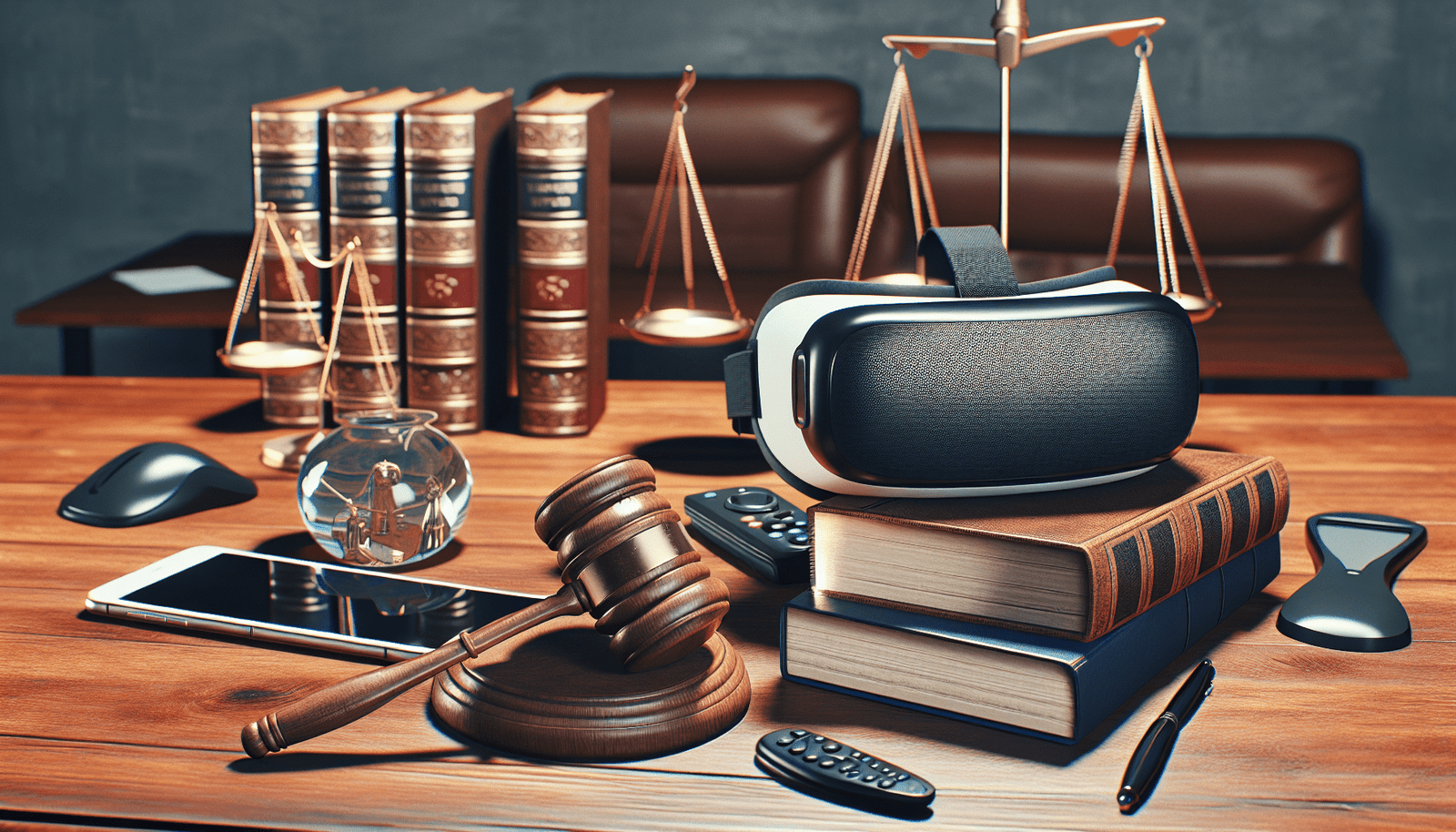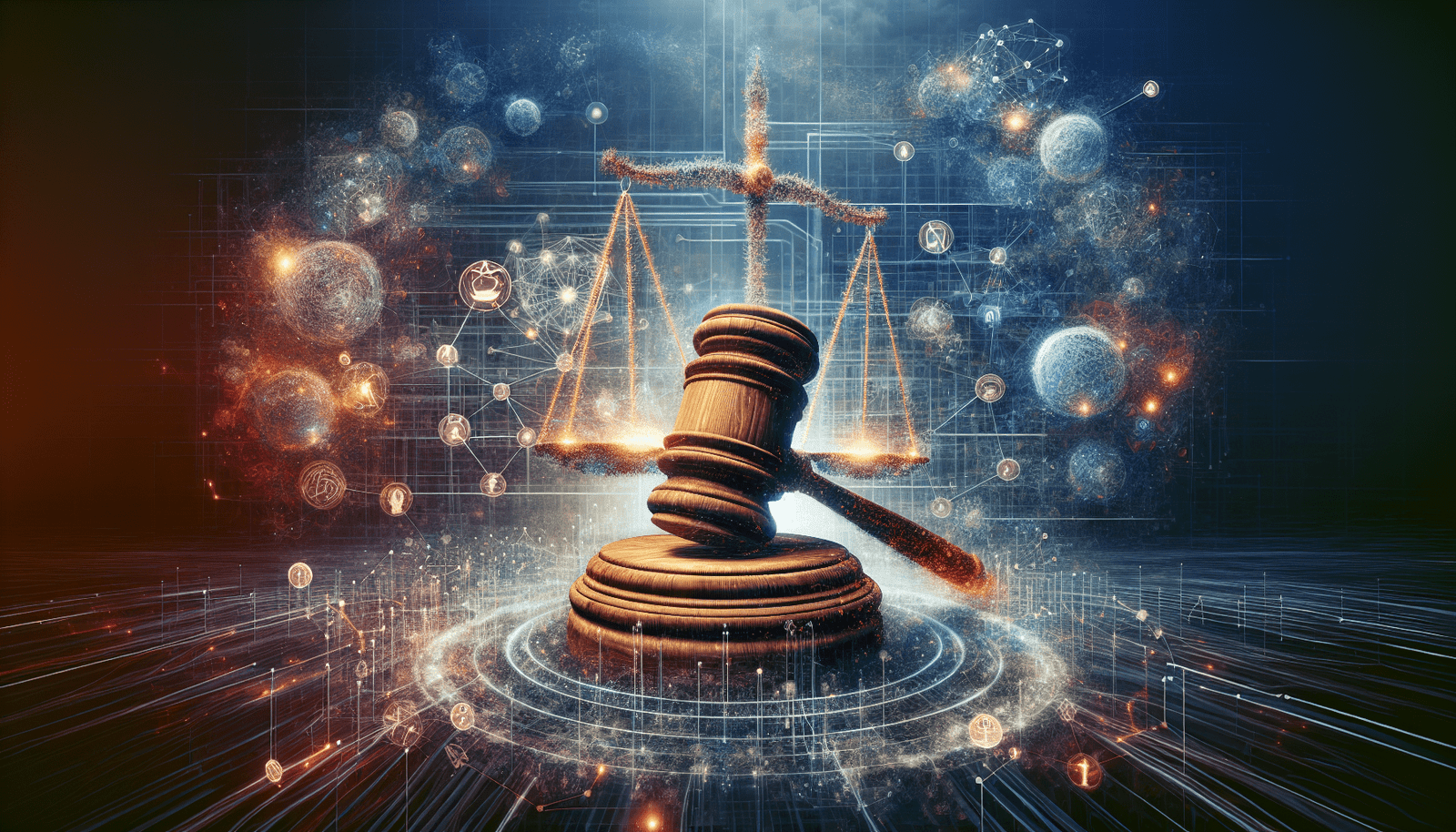Navigating the legal landscape of VR and AR can feel like stepping into an alternate universe where the rules you’re familiar with no longer apply. In my latest article, “VR AR Legal Challenges and How to Navigate Them,” I delve into the intricacies of virtual and augmented reality’s legal hurdles. From user privacy to intellectual property rights, I explore the unique challenges these emerging technologies present. Using clear, easy-to-understand language, I offer practical advice drawn from real-world examples and my own experiences. Whether you’re a developer, a user, or just curious about the future of tech, this piece will guide you through the labyrinthine legalities of VR and AR with a friendly and conversational touch. Have you ever wondered about the legal challenges surrounding the exciting worlds of Virtual Reality (VR) and Augmented Reality (AR)? If so, you’re not alone. As we delve deeper into these innovative technologies, it’s crucial to navigate their complex legal landscape. So, let’s embark on this journey together and unravel the intricacies of VR and AR legal challenges.
The Brave New World of VR and AR
Virtual Reality and Augmented Reality are game-changers in technology, opening doors to worlds we never thought possible. But with great power comes great responsibility—and a fair share of legal hurdles.
The Basics: What Are VR and AR?
Before diving into the legal complexities, let’s make sure we’re all on the same page. VR immerses you in a completely digital environment, making it feel like you’re somewhere else entirely. Think of it as teleportation for your senses. AR, on the other hand, overlays digital elements onto the real world. You’ve probably seen this in action with Pokémon Go.
Why Are These Technologies Legally Significant?
VR and AR blend fantasy with reality, making it challenging to draw the line on what laws apply. It’s like trying to define the rules of a board game inside a dream. The legal issues encompassing these technologies cover everything from intellectual property to personal safety, creating a legal minefield for developers, users, and businesses.
Intellectual Property: Who Owns What?
Copyright and Trademark Issues
Imagine you develop an AR application featuring famous landmarks. Can you legally do that? The answer is: it depends. Copyright and trademark laws are intricate. If the landmarks are trademarked, you might run into legal hot water. Nobody wants the Eiffel Tower’s lawyers knocking at their door.
Patent Troubles
Patents protect inventions, but navigating them in the context of VR and AR can feel like wandering through a maze. Numerous patents cover VR and AR technologies, from specific hardware like headsets to unique software algorithms. It’s like trying to invent a new kind of spoon without infringing on the patent for the “spork.” Tricky, right?
Authorship and Ownership
Who owns the virtual content created within VR or AR environments? It becomes even more muddled if multiple users collaborate on a project. Imagine co-writing a novel with a friend inside a virtual library. Does the book belong to both of you, the platform hosting it, or neither?

Data Privacy and Security: Big Brother in a Virtual World
User Data Collection
VR and AR systems collect a treasure trove of data. From eye movements to location information, the amount of personal data gathered is staggering. It’s like having a diary that writes itself based on your every glance and step. The challenge is ensuring this data is collected, stored, and used ethically and legally.
Health and Safety Risks
Strapping on a VR headset often means being oblivious to the world around you. This can lead to physical injuries—like unintentionally karate-chopping your coffee table. Safety guidelines are essential, but who’s responsible if you get hurt? The developer, the hardware manufacturer, or you?
Liability in Virtual and Augmented Worlds
Product Liability
If a VR headset malfunctions and injures a user, who bears the responsibility? Much like driving a faulty car, the lines of liability can blur between the device manufacturer, the software developer, and even the user. It’s a courtroom drama waiting to happen.
User-Generated Content
Just like on social media, users can create content in VR and AR environments. What happens if someone’s virtual creation defames another person or spreads false information? The platform hosting this content could find itself entangled in legal issues similar to those faced by Facebook and Twitter.

Privacy and Surveillance Concerns
The Thin Line Between Engagement and Intrusion
One of the fantastic elements of VR and AR is their ability to offer personalized user experiences. However, personalization often requires monitoring user actions, which can feel invasive. Have you ever had one of those “how did they know?” moments with online ads? Now imagine that in a fully immersive environment. Creepy, right?
Facial Recognition and Biometric Data
Many VR and AR systems use facial recognition to enhance user experience. While convenient, this raises significant privacy concerns. Who controls this sensitive biometric data, and how is it protected? Misuse could lead to identity theft or unauthorized surveillance.
Navigating the Legal Landscape
Strategies for Developers
If you’re developing VR or AR technologies, consulting with a legal expert from the get-go can save you a lot of headaches later. It’s like having a guide through a haunted house—you might still get spooked, but at least you won’t get lost. From securing patents to ensuring compliance with data protection laws, a proactive approach is crucial.
User Awareness and Protection
As a user, staying informed about your rights and the terms of service of any VR or AR platform is essential. It’s not the most thrilling read, but those lengthy agreements could save you a world of trouble. Additionally, being mindful of the data you share and setting privacy controls can offer extra layers of protection.
Practical Tips for Navigating Legal Challenges in VR and AR
Keep It Legal and Ethical
Whether you’re a developer or a user, always prioritize ethical considerations alongside legal requirements. Ethical lapses can lead to public backlash even if you’re skating on the right side of the law.
Stay Updated
The legal landscape for VR and AR is constantly evolving. Keeping up with the latest legal news and updates ensures you’re not caught off guard by new regulations or guidelines.
Engaging Legal Experts
For businesses, engaging legal experts specializing in tech can be invaluable. They can provide customized advice and help draft contracts that cover all bases, reducing the potential for future disputes.
Case Studies: Learning from the Past
Intellectual Property in VR
A notable case involved a VR company that incorporated trademarked elements without permission, leading to a costly lawsuit. The verdict underscored the importance of securing rights for all elements used in VR content. It’s a bit like building a sandcastle on someone else’s beach—you better have their okay first.
Data Privacy Breaches
One AR app faced backlash after a data breach exposed user information. The incident served as a wake-up call for the industry, emphasizing the need for robust security measures. It was a digital “Oops” that had real-world consequences.
A Look to the Future: Emerging Legal Trends
New Regulations on the Horizon
As VR and AR technologies continue to grow, anticipate new laws and regulations aimed at addressing their unique challenges. Lawmakers are keenly aware of the issues and are working to ensure that legal frameworks keep pace with technological advancements.
Ethical Considerations Becoming Legal Mandates
Expect some ethical guidelines to transform into legal requirements. Issues like user consent and data privacy are increasingly moving from the ethical to the legal realm, making compliance non-negotiable.
Wrapping Up: Steps Forward in VR and AR Legal Navigation
As we prepare to navigate the fascinating but complex world of VR and AR legal challenges, keeping informed and proactive is key. Whether you’re creating the next groundbreaking AR app or simply enjoying a VR game, understanding the legal landscape ensures you’re not caught off guard.
Stay curious, stay informed, and remember: in the new frontier of VR and AR, knowledge is not just power—it’s protection. So, shall we venture together into this brave new world, armed with both our VR headsets and legal know-how?



